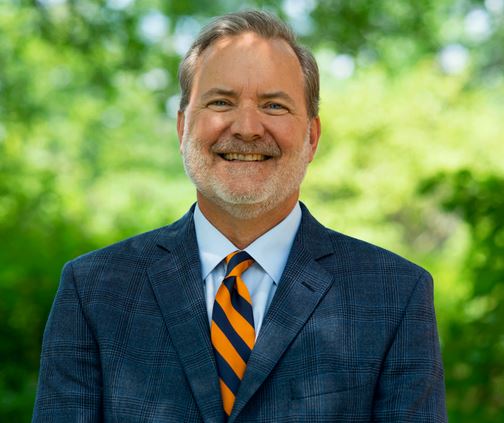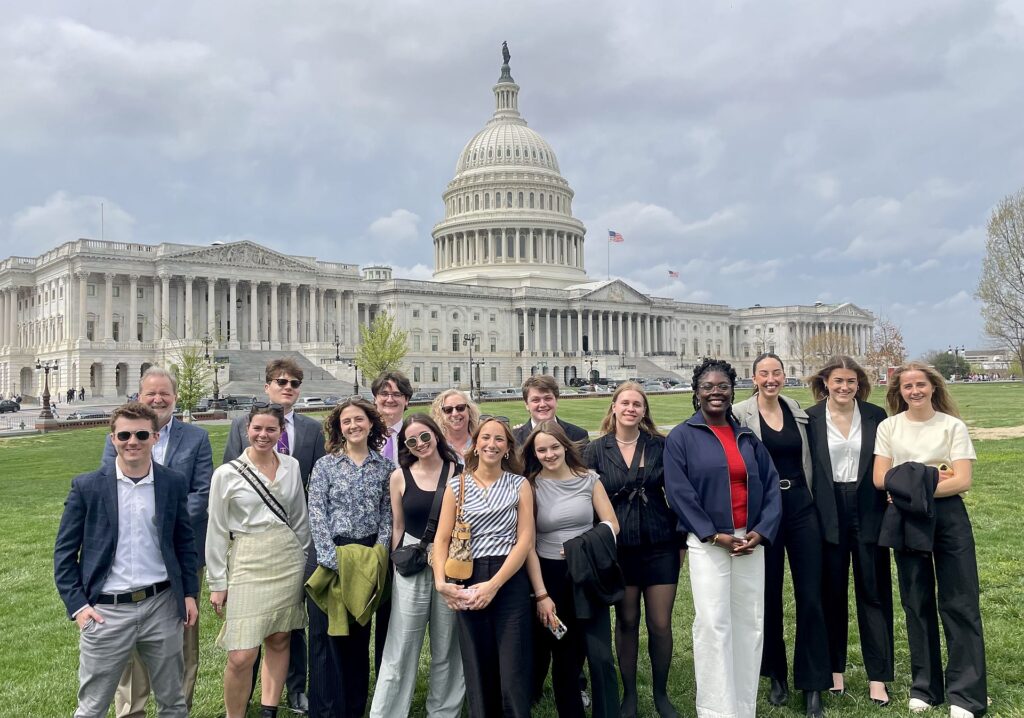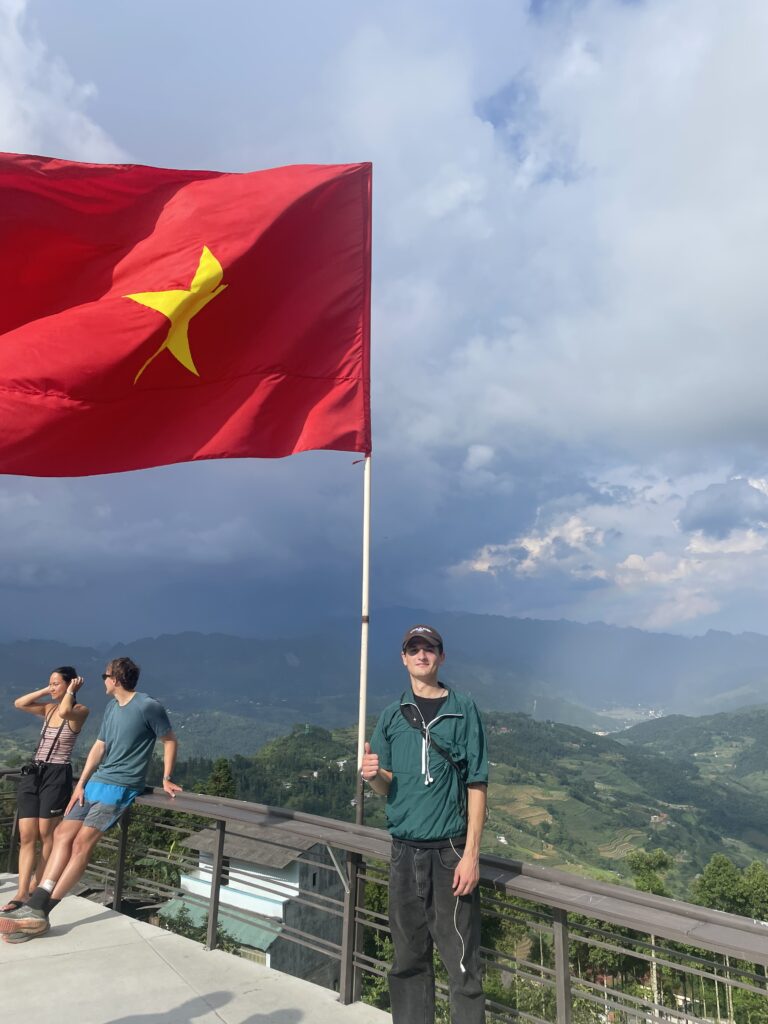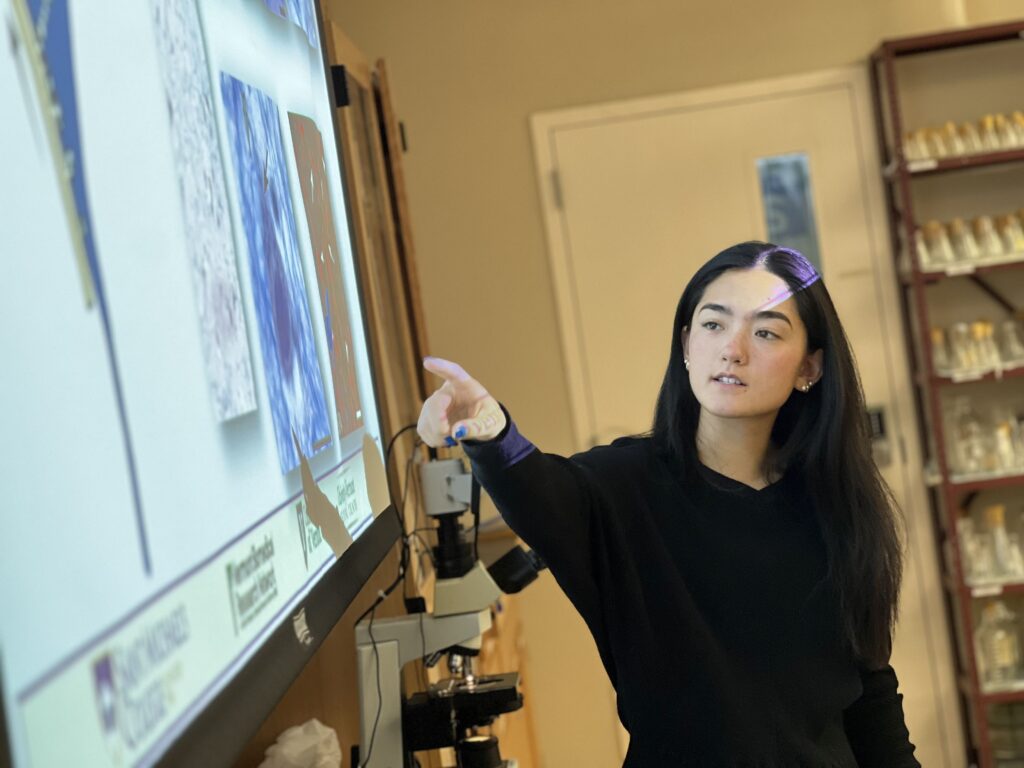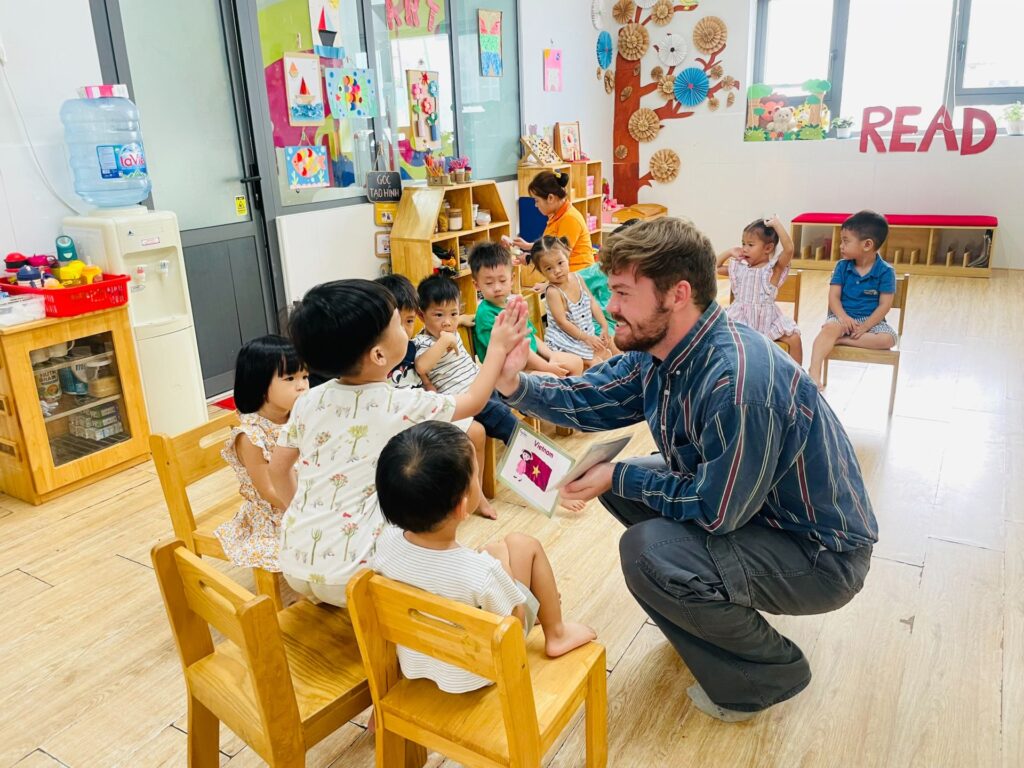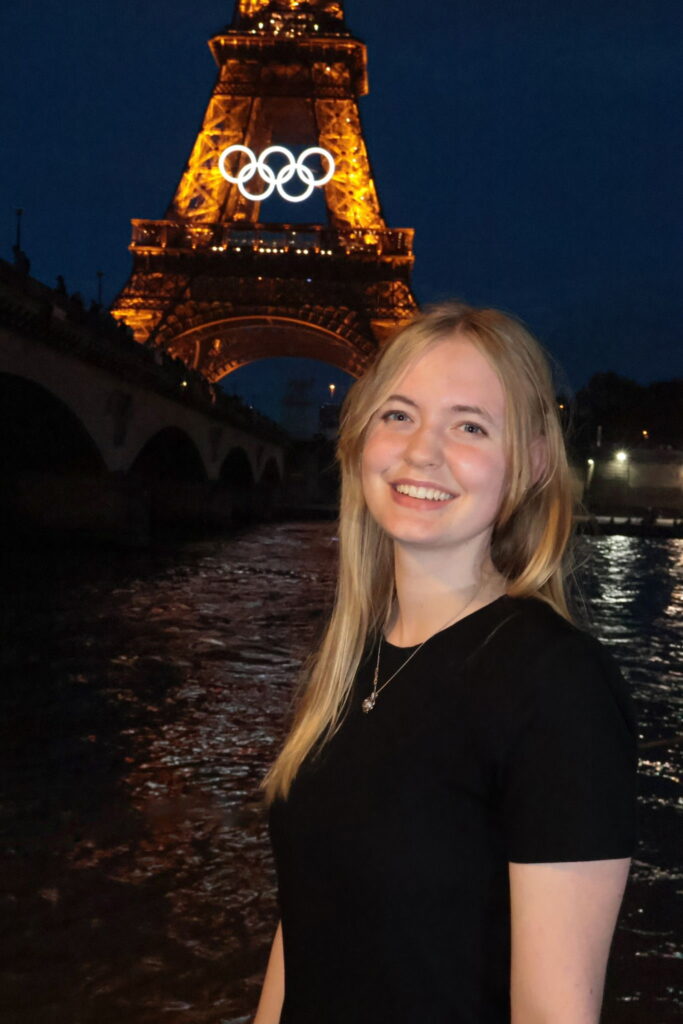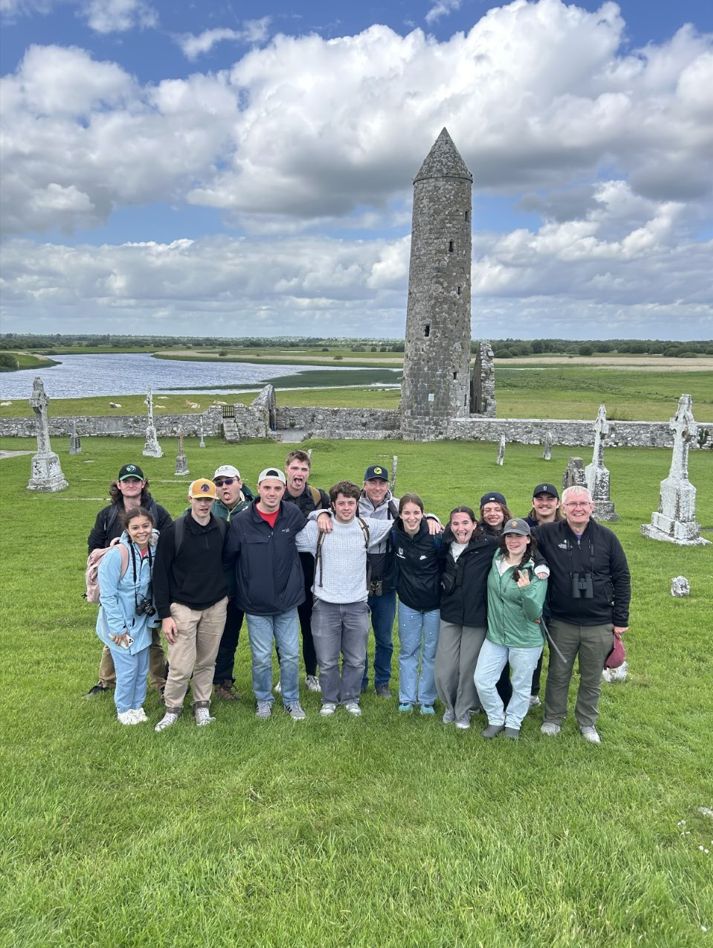“Imagine the value of having Saint Michael’s students in a class with all these students from around the world,” said Professor Jeffrey Ayres after his rewarding experience this summer collaborating with three Czech professors and a Canadian colleague to co-teach a short but intense virtual course called “Comprehending Canada.”
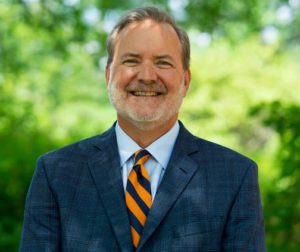
Jeffrey Ayres
He said the experience illustrates one unexpected and potentially positive outcome from the COVID pandemic: “Until the pandemic made us think more about online teaching alternatives, it would never have occurred to me to collaborate on a course like this,” said Ayres, longtime political science and international studies faculty leader and the former Saint Michael’s dean.
However, he first taught online and internationally in the fall semester during the height of the pandemic with a colleague at the University of Alberta in Canada; Saint Michael’s students in his Canadian politics course interacted with students from the University of Alberta, discussing shared concerns over the border, COVID, climate change and frayed relations between the two countries. This opportunity was a chance for the Saint Michael’s students to develop deeper insights into Canada, since they could not cross the border for the customary in-person trip Ayres typically leads to Ottawa, Canada in during the fall semesters.
This collaboration led to subsequent Zoom meetings about further online possibilities that included both Canadian and international colleagues in his field. One result emerging from those conversations was the idea for a summer collaboration that soon took shape as the intense five-session virtual “COIL Comprehending Canada” course, with the acronym standing for “Collaborative Online International Learning.”
While 13 of 30 total students in the late-June class were from two large Czech universities—Masaryk University in Brno and Charles University Prague—another 17 represented Germany, Estonia, Finland, Kazakhstan, Portugal, Austria, Serbia, Australia, Italy and Iran. Many among that global roster joined the class through various online offerings of Regensburg University in Germany, Tartu University in Estonia, University of Eastern Finland, University of Porto (Portugal) and University of Vienna (Austria).
Ayres was one of the five instructors, with one from Carleton University in Ottawa, Canada (who lives in Switzerland now), and the other three from the Czech universities. Students had access to recorded videos, readings and other resources, with live “meetings” at an online site hosted by Masaryk University. Twice-daily live 90 minute Zoom meetings probed into more details on the topics of the preparatory materials.
After an introductory meeting June 17, subsequent topics were on “National Identity, Diversity, Race and Ethnicity,” “Indigenous Studies, Literature and the Environment”: then, Professor Ayres’ June 28 session was on “Canada U.S. Relations, the Border, Refugees,” followed by colleagues’ sessions on “The Economy, Natural Resources, Immigration” and a final session June 30 on “Culture and Film.”
“This short five-day course is something that came about because, suddenly with COVID, so many of us were forced to go virtual and work through Zoom and Teams, and we realized there are actually great opportunities through those mediums,” said Ayres. “We realized we can connect internationally in ways we hadn’t thought to do—people are calling these collaborative projects examples of micro-internationalization.”
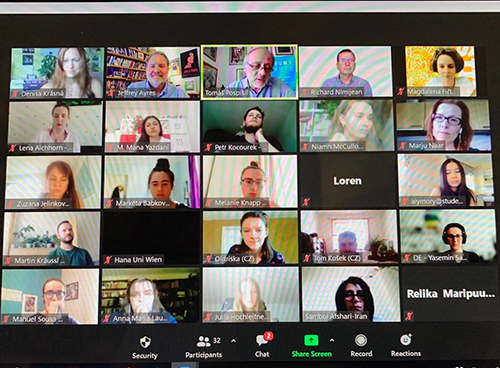
This screen-grab provided by Professor Ayres (second cell from left in top row). shows a meeting of the virtual international class about Canada from this summer.
Ayres hopes the course will start a relationship between Saint Michael’s College and Masaryk University that could lead to a similar course next summer that could also involve Saint Michael’s students taking the course with students from Eastern Europe. “I’m hoping we can even build off this for an actual academic study trip similar to the one I lead to Wales, UK, perhaps in the Czech Republic in summer 2023,” Ayres said.
Ayres said Masaryk, which primarily offered and delivered the course, is the second largest university in the Czech Republic, dating back to its founding in 1919. His long-time Canadian colleague affiliated with Carleton University but now living in Switzerland introduced him to the Czech colleagues and it went from there. “It was a very interdisciplinary course and we each were assigned two 90- minutes classes. It’s a good example of what’s possible—maybe you can’t yet travel internationally this summer, but you can take this course.”
He said the recent course was all in English, and it was impressive to see and hear so many students from so many countries having such relative fluency in English. “The students were very courteous and smart,” said Ayres, though for him the course management system named ELF was a challenge to navigate since it was in Czech.
“It’s exciting to think in the near future that we might start building more courses collaboratively and taught online and internationally,” he said. “As with the virtual international internships in Vietnam that we had some Saint Michael’s students participating in this summer, it’s not a substitute for in-person, but it might be an example of one way the post-COVID world allows us to be more innovative in terms of internationalization,” said Ayres.

For all press inquiries contact Elizabeth Murray, Associate Director of Communications at Saint Michael's College.
